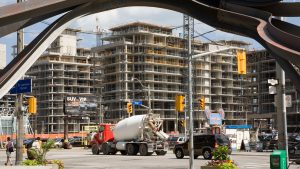The Ontario government continues its series of announcements affecting the residential construction landscape in the province. It recently announced a proposal to speed up construction of new housing and other projects by establishing an “administrative authority” to address areas where new permit approval services could be added and existing ones improved.
Municipal Affairs and Housing Minister Steve Clark said in a media release that the initiatives include the increased digitization of the approval process to allow e-permitting by municipalities and ease the use and understanding of the Ontario Building Code.
In addition, he said the province will help local governments hire more building inspectors, and take steps to ensure that, “registered building professionals remain up-to-date on building code requirements.”
Smaller rural and northern municipalities will also receive help to provide these building services.
Reaction has been largely positive.
“A new administrative authority for building services in Ontario could address a range of municipal challenges,” said Jamie McGarvey, president of the Association of Municipalities of Ontario (AMO). “E-permitting, for example, would help streamline development. It could also help with capacity issues, training and retention of building officials, and improved enforcement of building codes.”
Clark’s announcement includes promises of a consultation process with various stakeholders “to find out what people think.”
The consultation will include the province’s home builders.
“We will reach out to our local associations and members to generate some internal discussion,” said Joe Vaccaro, chief executive officer of the Ontario Home Builders’ Association (OHBA). “Does it serve our members’ business needs? Does it serve their inspection needs? Does it help them deal with the frustrations they find in the field when dealing with building code, design and inspection issues?”
While Vaccaro expressed the OHBA’s “optimistic support” for the proposed new authority, ground-level issues need to be addressed. He emphasized the obstacles encountered when a builder, architect or engineer wishes to use an innovative approach and then faces an inspector lacking the necessary expertise.
“The great frustration in the field is that we have a prescriptive code, which tells you exactly how the house should be built, but attached to it we have the objective pathway, where innovation, creativity and other expertise like engineering and architecture come in.”
What can result is flurry of paperwork exchanges, including stamped drawings, ending in a possible peer review requested by the building official.
“If the builder already has an engineering stamp on it, what does the peer review really accomplish?” asked Vaccaro.
The Ontario government states the new authority will be self-supporting through a fee structure, something Vaccaro said the OHBA will also look at closely.
“The membership is not afraid to pay a fee for a service that is necessary. The question we will have is, ‘Would we be paying for services that should already be provided in the current fees?’ ”
However, support of the proposed inspection overhaul is not unanimous throughout the industry, especially proposals targeted towards “building professionals.”
One Ontario architect who spoke with Daily Commercial News said that targeting building inspectors, engineers and architects was misguided, particularly in terms of residential work.
“The entire exercise totally misses the biggest problem in the construction industry.”
He suggested that a lack of standards for residential construction contractors in the province was resulting in a situation where, “If you own a hammer and a pickup truck you can operate as a ‘contractor.’ ” In contrast, he said that as a professional architect in Ontario, he must submit proof of 70 hours of continued education every two years, a process that costs him about $10,000 annually.
The Ontario government is inviting the public and industry to present their thoughts on the proposed changes. Submissions can be completed online or in person at one of several regional information sessions to be held around the province later this year.











Recent Comments
comments for this post are closed